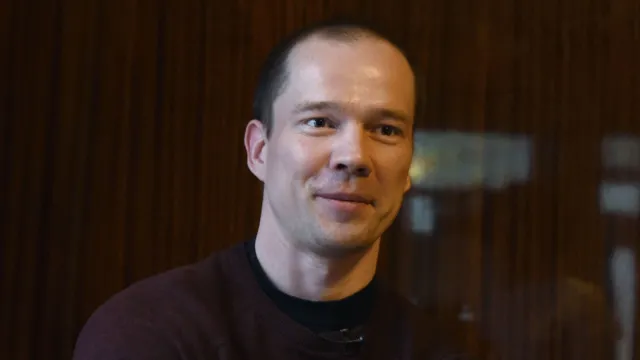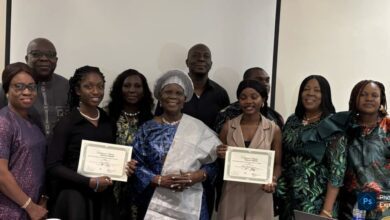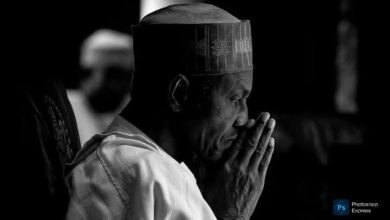

Ildar Dadin, a well-known Russian opposition activist who was fighting in Ukraine on the side of Kyiv, has been killed in action, according to the group that recruited him.
A spokeswoman for that group, the Civic Council, told the BBC that Dadin had died, adding that “he was, and he remains a hero”.
The activist-turned-fighter was killed when soldiers from his volunteer battalion, the Freedom of Russia Legion, came under Russian artillery fire in the Kharkiv region of north-eastern Ukraine.
For now, there are no more details and the Legion itself won’t comment whilst it says a military operation is still active.
But Ilia Ponamarev, an exiled Russian opposition politician with previous links to the Legion, has told the BBC he is “certain, alas” that Dadin is dead.
Another source clarified that this was “confirmed by those who were with him in battle”.
The latest messages I’ve sent to his phone are still marked “unread”.
Ildar Dadin became known in Russia a decade ago for his persistence in staging peaceful protests as political repression there intensified.
He was the first person prosecuted under a new Article 212.1 – quickly dubbed Dadin’s Law – that in 2014 made it a criminal offence to commit repeat violations of Russia’s increasingly restrictive rules on protest.
In his case, that simply meant standing on the streets of Moscow with a banner.
Sentenced to two and a half years, Dadin was placed in a punishment cell and immediately went on hunger strike. His prison guards then tortured him to get him to stop.
Soon after his release in 2017, I met him in Moscow and he described being hung from a wall by his cuffed wrists. The guards had then threatened him with rape. He admitted that the brutality nearly broke him.
So when I learned that Dadin had joined a battalion of Russian volunteers fighting for Ukraine, I got back in touch earlier this year and we had a series of long exchanges.
“I can’t sit by and do nothing and so become an accomplice to Russian evil, to its crimes,” Dadin explained his decision to sign-up, just as principled and intense as I remembered him.
He’d always considered himself a pacifist but now listed his reasons for taking-up arms: “The aggression, the mass killing, the torture, rape and looting.” Still, he chose the callsign Gandhi.
Dadin felt deeply that that he bore personal responsibility for Russia’s full-scale invasion of its neighbour.
He argued that he and fellow Russians had failed to stop Vladimir Putin, allowing themselves to be scared off the streets by police violence and the threat of prison.
“The main thing now is to act according to my conscience,” Dadin wrote to me one night from near the frontline in Sumy.
He initially signed-up with the Siberian Battalion in June 2023 before moving to the Freedom of Russia Legion last winter – both officially part of the Ukrainian Armed Forces.
BBC



